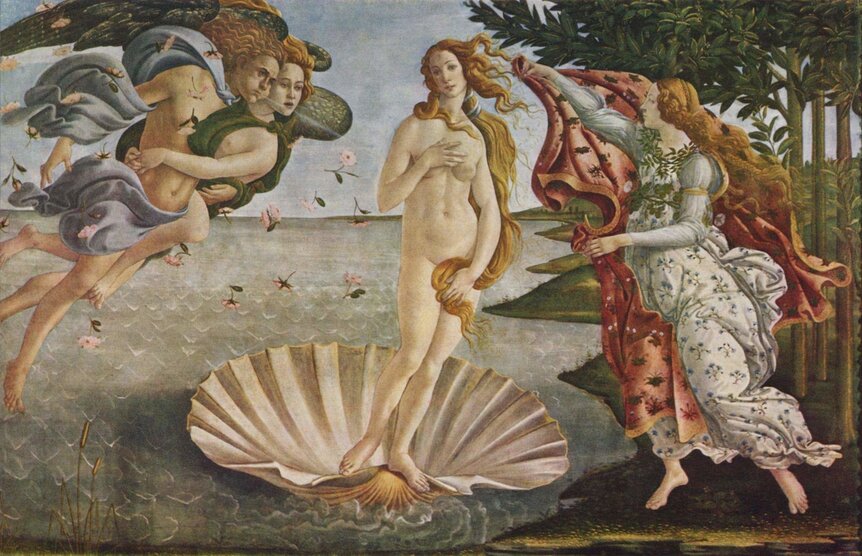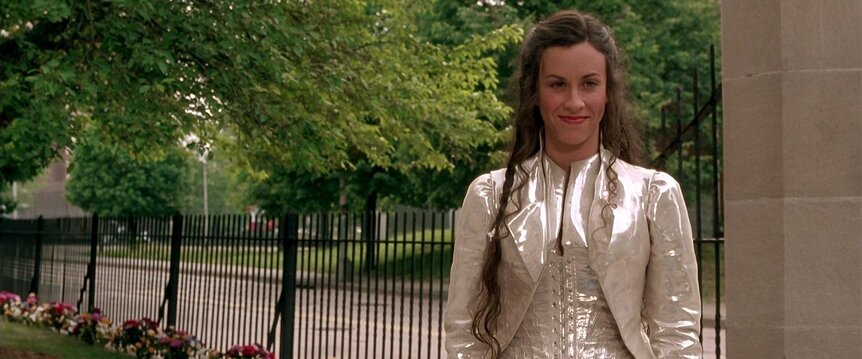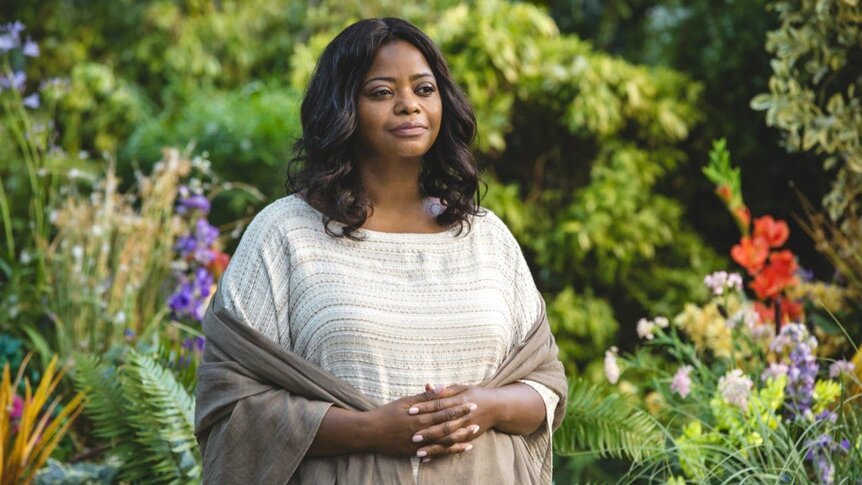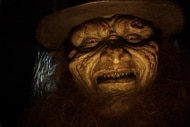Create a free profile to get unlimited access to exclusive videos, sweepstakes, and more!
When God was a woman
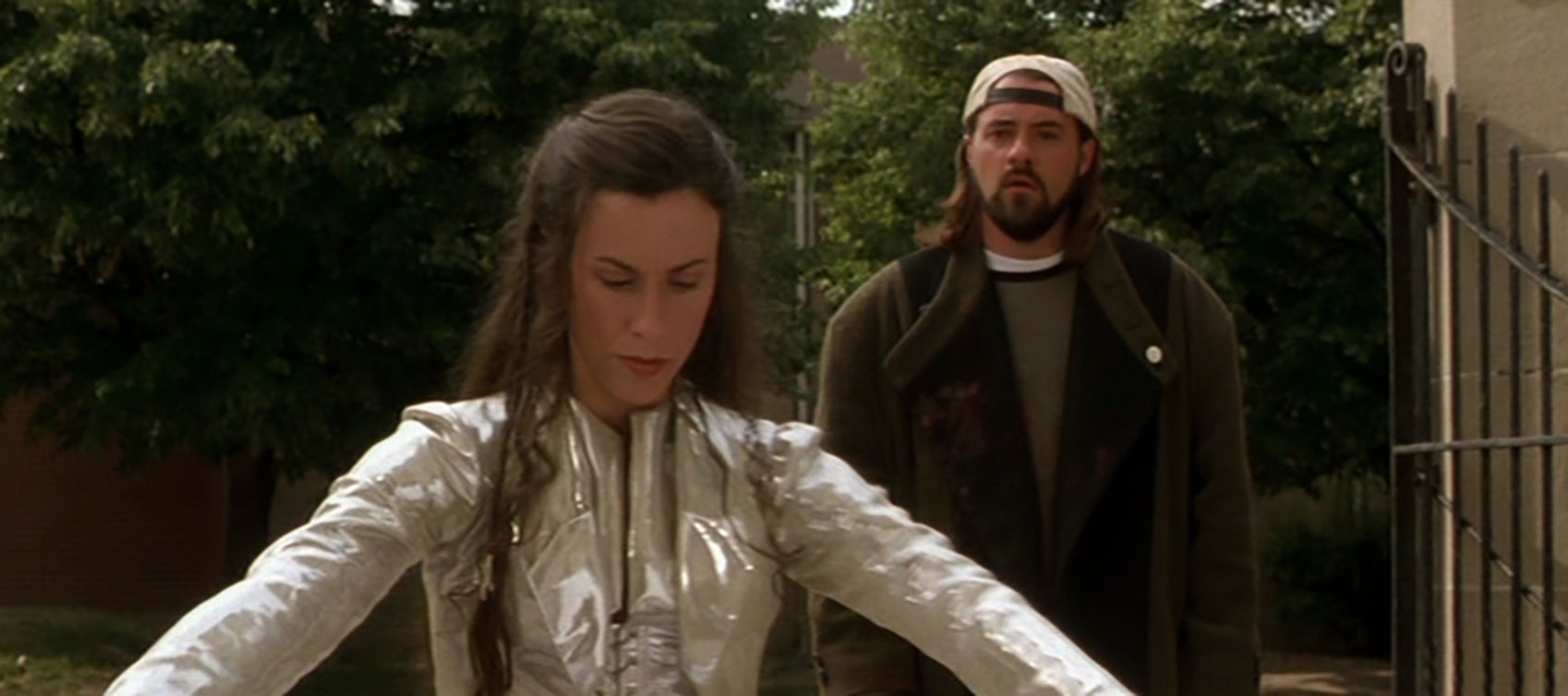
God made his first appearance in a little book called the Bible, and he’s been here with us, creating all life ever since. Though physical manifestations of a Supreme Being appear pretty regularly in fiction, the guise they choose to take on is generally pretty unimaginative for someone who can be absolutely anything. You’re a Supreme Being, and you just walk around in a robe thoughtfully stroking your beard all day?
To that end, we’re here to talk about times that fictional God was more interesting than your average random guy in a Starbucks talking too loudly into his cell phone.
When God Was … A Woman?
Yes! Women can be anything they want to be, including God. When God Was a Woman is a book by Merlin Stone written in 1976, in which the historical practice of worshipping a Sacred Feminine comes under investigation. In it, Stone asserts that intentional repression of powerful feminine archetypes and deities is a primary founding element of the systemic oppression of women.
This book obviously made a lot of people very angry in the late ‘70s, but, maybe not that surprisingly, it had an influential effect on many feminists of the time. Shockingly, there hasn’t been a lot of follow-up on this research by modern-day historians, so Stone’s book serves as pretty much a stand-alone text for your average reader. Though perhaps not as well-remembered as other feminist texts of the ‘70s, references to Stone’s work pop up in the very strangest places. In fact, in Alan Moore and Eddie Campbell’s highly intense book on Jack the Ripper, From Hell, the villainous Doctor Gull goes on a tirade praising the destruction of female power via methods described in When God Was A Woman.
When God … Oughta Know?
Of course, when you bring up a lady God, the depiction most likely to be referenced by just about anyone in the U.S. who was over the age of 12 in 1999 is going to be the appearance of alternative icon Alanis Morissette in Kevin Smith's Dogma. After two angels go awry, cause mass destruction, and nearly usher in the end the universe, a nonverbal Alanis shows up and makes a few shrugs and gestures and fixes the whole mess. This God has one hand in her pocket, and the other one’s creating all life.
In Dogma, the script's primary focus is on criticism of hypocrisy in religion, even when the hypocritical behavior comes from the deities themselves. Though many characters express anger with God throughout the script, when she finally shows up just grinning that affable Canadian grin, all is forgiven. This is understandable because getting angry at Alanis Morissette would be a little difficult. We do stan alt-rocker and recurring Weeds guest star Alanis as the divine power. We do, we do.
When God Was ... Xena’s Arch-Nemesis Callisto?
In the first season of Xena: Warrior Princess, we were introduced to Callisto, a woman who represented Xena’s murderous past. As she was a young girl when Xena’s army destroyed her village and caused the deaths of everyone she loved, Callisto grew up with an incredibly reasonable hatred of Xena, which was to become her defining characteristic, much as our love of Xena is our defining characteristic.
Xena fans know that Callisto was consistently one of the best characters on the show due in no small part to her complete unpredictability. In the two-part crossover "Armageddon Now," Callisto gains Godlike powers through the consumption of ambrosia (which looks like Jell-O). Though she intended to use the Hind’s Blood dagger against Hercules, once she realizes she has the ability to kill a god she just goes for the one standing closest to her at the moment. Stabbing Strife in the chest, she spits, “I wouldn’t be a part of any club that would have me as a member,” and everyone around her proceeds to completely lose it. Callisto’s reign as God might have been short-lived, but it's by far one of the most memorable moments of the whole series, and she remains forever a supreme being.
When God Redefined Your Understanding of Feminine Power
God is maybe a goth teenager, and we’re just here to let you know. In Vertigo’s Lucifer, the alienated Elaine Belloc shows up as a young girl who can see ghosts, becomes a friend and foil for Lucifer, grows angel wings for a while, and ultimately decides to just go ahead and become God. She creates a whole universe over which she reigns as the supreme being. Let that be a lesson to us all: Elaine Belloc started out as spooky Nancy Drew and one day became actual God, so don’t be afraid to ask for that promotion at work. Big dreams can become big realities!
In The Shack, God (referred to as Papa) is played by the great Octavia Spencer. This book and the film it's based on revolve around a troubled father’s quest for peace and self-forgiveness when his daughter is killed. Papa is nonjudgmental and even-toned and gives space for understanding one’s own flaws while striving to become a better person through love and absolution. Of course, this infuriated a lot of people, and there were outcry articles about how blasphemous this film was, but honestly, Octavia Spencer as God? We’re here for it.
When God Was One of Us
It’s important to note that in the wild world of fiction, there are a lot of times when God appears as existing outside the gender binary altogether, and that is the take that would make the most sense for a cosmic being that has no reason whatsoever to allow themselves to be defined by human standards. It's kind of baffling that God is ever gendered, actually, but who are we to say for sure why that is? We're just some strangers on the bus, trying to make our way home. We don't know everything.
There are also several real-world religions that actively practice the worship of the Sacred Feminine in the here and now. Notably, Shaktism is a Hindu denomination that worships the Divine Mother over all others, under the belief that all gods are simply her many different forms. There is a global interest among women in the potential spiritual value of a feminine Supreme Being, so Shakta temples have only become increasingly popular with time. Shaktism is only one example of the worship of female deities, however. Though there are more woman-centric moments in the religious texts of the world than we could ever begin to describe in a single article, rest assured that, for a lot of people, feminism and religion go hand in hand.
One thing is for sure: Although a lot of people strongly disagree with reimagining the physical representation of God, themes of God as a woman in art aren't going anywhere. As recently as 2018, Ariana Grande's bop "God Is a Woman" addressed the exact subject we're talking about here, and themed creation as a specifically feminine attribute.
Meanwhile, the Chicago-based artist Harmonia Rosales has come under criticism for her beautiful renditions of classical religious-themed paintings which replace the white men we've become so desensitized to seeing with Black women. In an interview with BET, Rosales stated, "We have been taught that God created ‘man’ in his own image. In fact, we have created God in our own image. So ‘God’ is whoever we want God to be, a representation of the ideal, of the divine, of wisdom and love and pure creativity. Let’s face it, creativity, starting with the womb, is a female attribute."
All we’re saying is that maybe, going forward, every single fictional depiction of God doesn’t have to be an elderly white man with a booming voice. If God is all-powerful, it stands to reason that God can appear to a lot of people in a lot of different ways. Heck, God could even be a woman.
The views and opinions expressed in this article are the author's, and do not necessarily reflect those of SYFY WIRE, SYFY, or NBC Universal.
